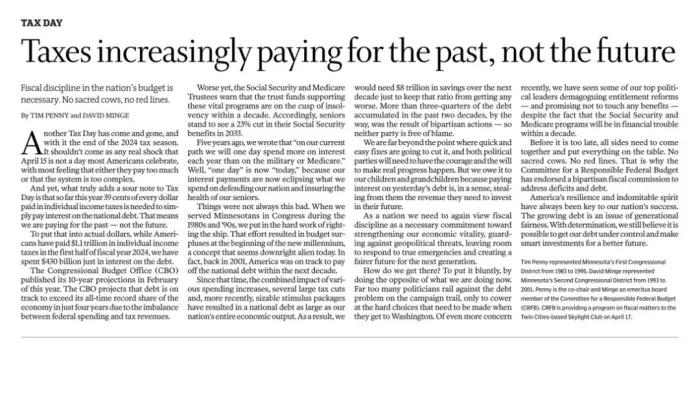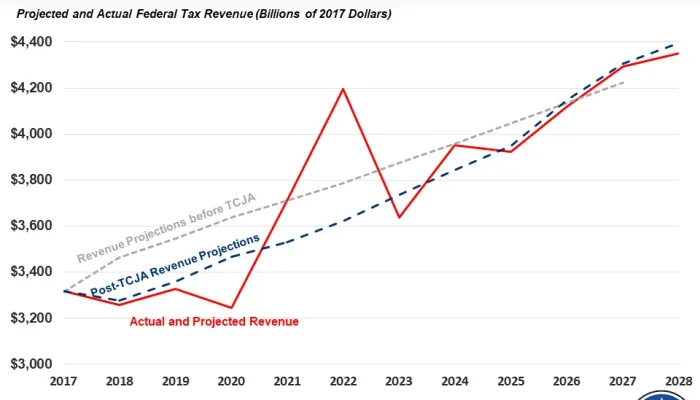Bob Pozen Offers Corporate Tax Proposal
Much of the focus of broadening the tax base in tax reform is on tax expenditures. However, as both our corporate tax paper and our corporate tax calculator showed, there are many base-broadening options outside of tax expenditures.
Robert Pozen, a senior lecturer at the Harvard Business School and a senior fellow at the Brookings Institution, demonstrates, detailing a corporate tax reform that he estimates would adhere to revenue-neutrality. His plan? Disallow 30 percent of corporate interest deductions.
He says that simply relying on reducing tax expenditures to finance a rate cut would not be sufficient. The smaller preferences do not raise much revenue, and it may be desirable to keep some of the larger ones because of their positive effect on economic growth (for example, research and development preferences). He explains his rationale for limiting the interest deduction as follows:
Currently, when a corporation pays interest, it may deduct that interest on its tax return. By contrast, a corporation may not deduct its dividend payments to shareholders. This bias distorts the financing decisions of corporate managers, who might choose, solely for tax reasons, to finance a certain project with debt instead of equity. This bias also distorts investment decisions in favor of easily collateralized equipment suitable for debt finance, at the expense of investments better suited for equity finance, such as capital-raising by small business.
The tax code’s bias for debt is even more worrying, because excess leverage often imposes costs on external parties other than the debt issuer. For instance, a highly indebted company is more likely to go bankrupt, which can seriously harm its employees, customers and suppliers. Companies are unlikely to fully consider those external costs when deciding how much debt to take on.
Furthermore, reforming the treatment of interest expenses can raise a large amount of revenue and thus pay for a significant reduction of the corporate tax rate. In 2007, corporations with net income paid $294 billion in corporate taxes and claimed $1.37 trillion in gross interest deductions, according to the Internal Revenue Service.
Pozen estimates that allowing a deduction for only 70 percent of interest expenses would finance a rate cut to 25 percent in a revenue neutral way. It is clear that this option takes a much bigger bite out of interest deductions than the option in our tax calculator, taken from the Wyden-Coats plan, to reduce interest deductions by the portion of interest attributable to inflation (that option also uses net interest while Pozen uses gross interest). That option would only finance about a 1.4 percentage point reduction in the rate, or raise about $15 billion per year.
Pozen's idea is certainly an intriguing one and could play an important part in any corporate tax reform plan. At the same time, we caution against ruling out tax expenditure reductions altogether, since many tax expenditures in the code work to distort economic decisions and prove to be quite costly. In any case, corporate tax reform must be designed in a fiscal responsibility way to ensure that the potential growth benefits are not overwhelmed by growing levels of debt.


